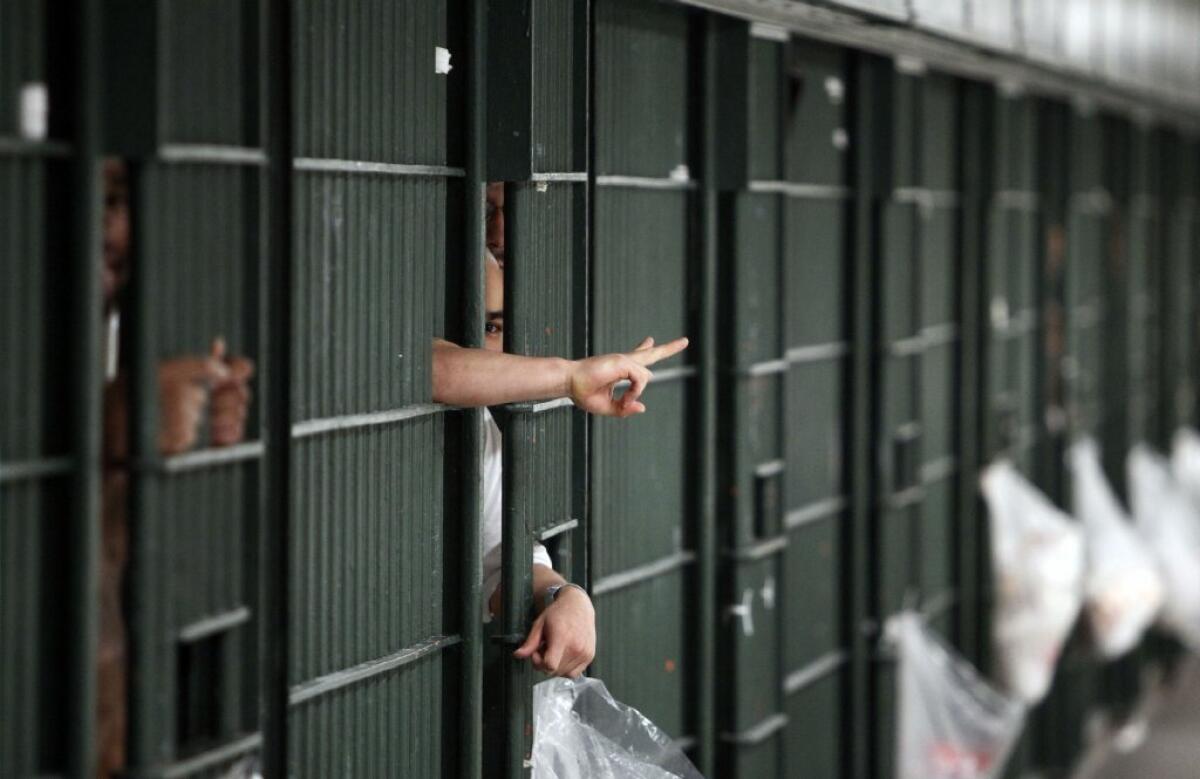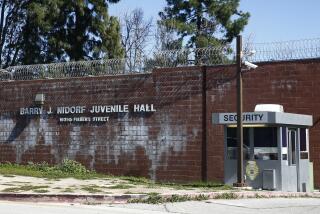Split sentencing: What’s not to like, L.A.?

While he was in town late last month to talk with local water agencies and policymakers about the drought, Gov. Jerry Brown also had a lower-profile but just as urgent meeting with Los Angeles County’s top criminal justice officials. What is it with you L.A. people, the governor asked, and your resistance to split sentencing?
It’s a good question, even if it requires a bit of explanation. Under California’s AB 109 public safety realignment, low-level felons do their time in county jail instead of state prison, and courts have the option to split their sentences between time behind bars and time under supervised release. An offender sentenced to four years, for example, may get out after only two — but then be subject to another two years of structured reentry into society, with intensive oversight and required participation in drug or mental health treatment, anger management or other such programs. Counties administer those programs, but the state pays for them.
Several counties are taking advantage of split sentencing with promising results. In Riverside County, for example, 80% of AB 109 felons leave jail for mandatory transition and supervision programs, and early figures suggest lower rates of recidivism. In Los Angeles County, only 6% of felons have their sentences split, and the rest walk out of jail on the final day of their terms subject to no search and seizure, no supervision, no mandatory rehab or services, no management or oversight of any kind.
For nearly three hours, Brown heard L.A. County leaders try to explain why they won’t split sentences, but most of the arguments boil down to the fact that prosecutors, defense lawyers and judges are used to doing things a certain way. That’s a lame excuse for rejecting an option that can increase an offender’s likelihood of going straight while freeing up jail space and saving money.
Dist. Atty. Jackie Lacey is now putting together a group of prosecutors to study the issue, and it’s a welcome, if rather tardy, development. Judges, defense lawyers and police would be wise to take a similar course, and quickly. Brown’s proposed budget includes language that would impose on criminal courts a presumption of a split sentence, and judges would have to state on the record their reasons for rejecting the option.
It’s a change specifically tailored to make Los Angeles County’s sluggish criminal justice leaders do what’s best to protect the public, and it should be adopted and take effect later this year — unless criminal justice officials here can finally spur themselves into taking some action on their own.
More to Read
A cure for the common opinion
Get thought-provoking perspectives with our weekly newsletter.
You may occasionally receive promotional content from the Los Angeles Times.










